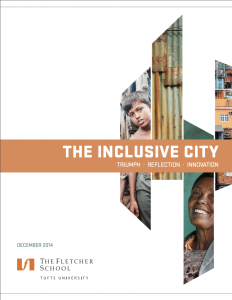In a world that is for the first time predominantly urban and rapidly becoming more so, the challenges and opportunities experienced in cities around the world are unprecedented. Massive urbanization brings enormous challenges to governments and the market alike. The ranks of urban poor have swelled, generating acute demand for accessible and affordable goods, infrastructure, and services. The inadequate capacities of governments to respond to this trend have created opportunities for the private sector to provide essential services, typically under the purview of the public sector.
How can we develop and plan cities so that they respond to the unique needs of the urban poor while ensuring that opportunities are open to people of all socioeconomic strata? What is the state of urban experience, particularly for the poor?
In what ways are urban trends across emerging and frontier countries shared with developed nations? How can we use new technologies and tools to create innovative urban practices?
Structured in these large contexts, The Fletcher School at Tufts University and The MasterCard Center for Inclusive Growth hosted The Inclusive City Forum, May 1 and 2, 2014.
Over the two days, thought leaders, academics, private sector innovators, policy makers, students, and artists, gathered for a jam-packed two days at Tufts University’s Inclusive City Conference. The “unconference” combined traditional panels and lectures with unconventional presentations, debates, and rapid prototyping, which sparked many new connections, conversations, and concepts.
Click here to see photos from the event!
The tone of Day One was set with a lively Oxford-style debate on the proposition that “The road to the Inclusive City runs through City Hall, rather than the slums and bazaars.” The audience voted for the slums and bazaars, but that didn’t stop anyone from enjoying former Boston Mayor Thomas Menino’s discussion with Benjamin Barber on the reality of leading an innovative city. Keynote speaker Ed Glaeser captivated the audience with “The Promise of the City” in the morning, while deep dives into Medellín, Addis Ababa, and Mumbai brought that promise home with key examples of inclusions in practice.
Day Two took the energy and insights from the conference’s opening day and addressed some of the world’s most pressing urban issues. Guided by facilitators from frog design and Continuum, six teams tackled cross-cutting issues over the day-long brainstorming session. Sharpies and sticky notes flew as fast as ideas, culminating in final pitches of out-of-the-box ideas directly inspired by the day’s conversations.
We look forward to seeing you at the next Inclusion Forum!

